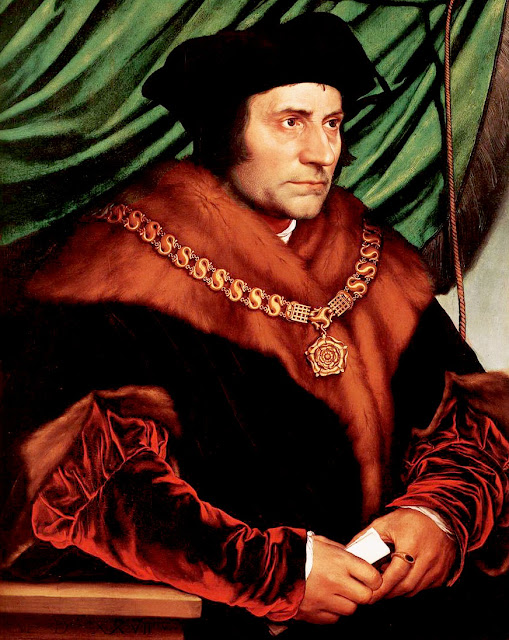Sir Thomas Moore War on Drugs Letter
https://phistars.blogspot.com/2012/12/sir-thomas-moore-war-on-drugs-letter.html
Sir Thomas Moore War on Drugs Letter
Editor's Note: This one is the Sir Thomas Moore Letter on the War on Drugs. I am certain that you will like it a lot. It goes hand, in hand with my Machiavellian writing. Well, Lets just get this show on the road. Like I said before, my writing has, and always will be 5 stars worthy.
From Sir Thomas Moore,
My dear friend, it has been centuries since I heard news of you. I am quite appalled that you became saint at my expense. I am a bit jealous. But let me abstain from this issue. I shall try my best to answer your concerns regarding the current state of the War on Drugs. The rulers in New World is “content to be safe” and cannot “remedy the folly of the people” (More, Thomas Utopia. Pg. 64). Thus, having given up in preventing the crimes they proceed to punish the knavery. I must uphold that it’s vain to punish drug traffickers or addicts with jail for it is “extreme injustice” such “extreme justice” (pg. 38). Are we so harsh to send a man to jail for the selling of herbs? It is not righteousness for one to count these kinds of offenses “so nearly equal that of killing of a man” (pg.38). Rather it would be better to punish this sorts of knavery “…through the purse, and not with…”(pg.39) incarceration. Nay, these harsh measures only provoke the drug addicts “to kill” to avoid arrest (Pg.39).
Master
Moore, I must recapitulate my old argument it is impossible for justice to
exits in a place “all things come into the hands” of few while the rest “live
miserably, wretched and beggarly” (Pg. 64). It’s no surprise that in such a
place the poor would seek any means to remedy their poverty. Rather it would be
best to follow “wise and godly …ordinances of the Utopians” (pg.64).
In
our last conversation I vividly described the Utopians
“manners…ordinances…laws” (Pg.68). Thus, in order to avoid redundancy I shall
focus in the Utopians’ righteous manner of combating the drugs. For starters
Utopia came into contact with these herbs and opiates when one of these
traffickers visited Utopia. I think his
name was Bado Mary Juana Trafico. He saw
profit out of the Utopians “harvest work” (pg.75). As the years had passed the Utopians had
managed to increase their harvest production that it only required three hours
instead of “six hours to work”(pg. 83).
Thus,
one day Mr. Trafico sought audiences with the Utopian magistrates besiege the Utopians
to help in the cultivation of his herbs. The prince at that time Utopus II ,a wise and
noble man saw, beyond Trafico’s scheme of giving better use to certain “uncultivated
lands” (class notes : Part 2: 5- The Dystopian Dimension of Utopia )in
Bolivia, Mexico and Colombia. He saw
that this trade would invite serious reprimands from the United States. Thus,
in order to avoid war within the homeland Utopus turned his sword upon the drug
dealers.
After
much deliberation the magistrates offered to purchase Mr. Trafico’s entire
estate with the purpose of redirecting his crops for something more profitable
for the common wealth. Utopus also added, that should Trafico selling his herbs
within Utopia again he would be punished “with bondage” (pg. 141). Despite all
Trafico’s arguments, Utopus was never convinced that a drugs that either opaque
physical or mental work where of any merit. After this incident, Utopia’s war
on Drugs began.
After
many years, Utopus hired the “Zapoletes” to expel the Traffickers and reorient
the land for proper cultivation (pg.144).
Accompanied them were volunteered Utopians that kept the “conduct of the
whole army” in check (pg. 146). Thus, in a combined effort with their allies
from Interpol, the Utopians succeeded in eradicating the production of illegal
herbs in these countries. This was facilitated by their “proclamations” in the
enemy territory that “promise great rewards for those their enemies’…”leader
(pg.142). In doing, so they created strife and unrest within the personal
armies of these traffickers. Thus, the offenders at the end of these wars where
either punished “with death or with bondage” (pg.141) Also those that
surrendered peacefully where fully compensated for their lost of their
business. In addition, the farmers from these illegal opiates where then given
employment by the Utopians. Thus, both
traffickers and their workers having been fully compensated for the lost of
their works where not prone to restart their illegal business else were.
The
consumers of these opiates are a different manner. It rarely happens that a
Utopian is found with these opiates. A first time offender is severely “shame
and rebuke, and is sharply punished”. This punishment is usually decided by the
offender’s respective syphogrants or the head of his family. A second offense
“is punished with bondage” (pg 98). Should they work diligently they are
released from bondage after a year. Each act of insubordination would only
serve to add a month to their penance. This
arduous backbreaking labor would not give occasion for the addicts to return to
their opiates. In time, they begin to associate bondage with opiates and thus
more these Utopians readily shy away from them. In doing so, they maintain the
workforce vitalized and the commonwealth does not suffer the strain of
maintaining people incarcerated for decades.
Thus,
the Utopians rooted out both outside and inside corruption created by the
illegal trafficking of opiate herbs or drugs. Having removed the suppliers of
drugs and controlled the consumer population through bondage Utopia’s war on
drugs proceeds smoothly. For now, Utopia is trying to convince their allies on implementing
softer punishments for drug abuse. Utopus II understands that bondage was
frowned upon in this modern world. Thus, he is an arduously advocates for
community service instead of incarceration.
I
sincerely hope, in my heart of hearts, that such injustice be amended. And that
the War on Drugs becomes a thing of the past. I hope this letter served as an
adequate response to your inquiry rewarding the New World’s war on Drugs.
Sincerely
yours,
Raphael
Hythloday
P.S- Oh! And do not forget to give
me credit next time.
Work Cited
More, Sir Thomas. Utopia of Sir
Thomas More . Classics Club.Walter J. Black, Inc. Roslyn, N.Y. Copyright
1947.





